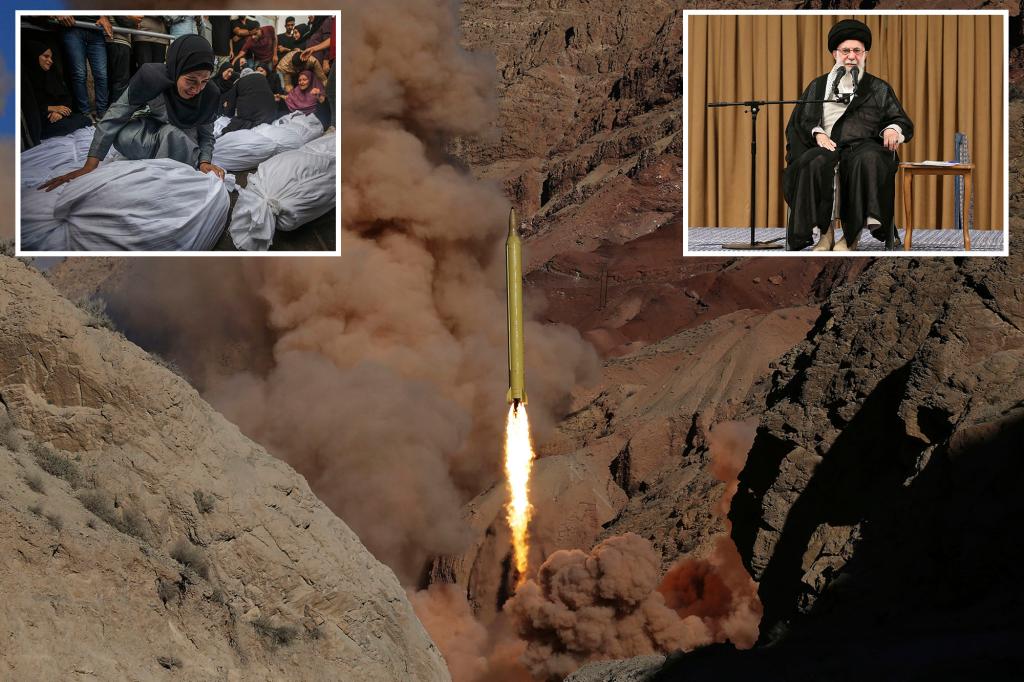Iran has reportedly threatened to fire ballistic missiles at Israel “immediately” following the Israeli Defense Forces’ ground incursion into Lebanon. The threat comes as a response to Israel’s advancements against the Hezbollah terrorist group. A senior White House official revealed that Tehran is prepared to launch a direct attack against Israel in retaliation for the IDF’s actions. This development has heightened tensions in the region and raised concerns about a potential escalation of conflict between Iran and Israel.
The threat of a missile attack from Iran towards Israel underscores the volatile and complex dynamics at play in the Middle East. The ongoing conflict between Israel and Hezbollah has been a source of regional instability for years, with both sides engaging in periodic military confrontations. Iran’s support for Hezbollah adds another dimension to the tension, as Tehran views the group as a key ally in the region. The prospect of a direct military confrontation between Iran and Israel raises the stakes and could have far-reaching consequences for the region.
The United States, as a key ally of Israel, is closely monitoring the situation and working to de-escalate tensions between Iran and Israel. The White House official’s disclosure of Iran’s threat to target Israel with ballistic missiles highlights the seriousness of the situation. The U.S. may seek to engage in diplomatic efforts to prevent a further escalation of conflict and ensure the security of its ally. However, the prospect of a military confrontation between Iran and Israel poses a significant challenge for the United States and the international community.
The threat of ballistic missile strikes from Iran towards Israel is a cause for concern for both countries and the wider region. The deployment of advanced missile technology by Iran raises the potential for significant damage and loss of life in the event of an attack. Israel, with its advanced missile defense systems, has the capability to intercept and counter such attacks. However, the threat of missile strikes adds a new dimension to the conflict and increases the risk of wider escalation. The international community must closely monitor the situation and work to prevent a further escalation of conflict in the region.
The escalating tensions between Iran and Israel highlight the need for de-escalation and diplomatic solutions to prevent a further outbreak of conflict. The threat of a missile attack from Iran towards Israel underscores the volatility and complexity of the situation in the Middle East. Both countries must exercise restraint and work to avoid a dangerous escalation that could have far-reaching consequences for the region. The international community can play a critical role in facilitating dialogue and promoting peaceful solutions to the ongoing conflict between Iran and Israel.
In conclusion, the report of Iran’s threat to launch ballistic missiles at Israel in retaliation for the IDF’s actions in Lebanon highlights the dangerous escalation of tensions in the region. The United States and the international community must work to prevent a further escalation of conflict and promote diplomatic solutions to the ongoing crisis. The threat of a missile attack from Iran towards Israel underscores the need for de-escalation and dialogue to prevent a wider military confrontation. It is imperative that all parties involved exercise restraint and work towards a peaceful resolution of the conflict to ensure the stability and security of the region.


